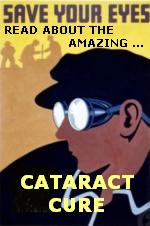|
Home
About
Us
Bookstore
Links
Blog
Archive
Books
Cinema
Fine Arts
Horror
Media & Copyright
Music
Public Square
Television
Theater
War & Peace
Affilates
Horror Film Aesthetics
Horror Film Festivals
Horror Film Reviews
Tabloid Witch Awards
Weekly Universe
Archives






|
MUSIC CRITICS EMBRACE POPTIMISM OVER ROCKISM
by Sam T. Karnik, guest contributor [September 19, 2009]
[HollywoodInvestigator.com] The stranglehold of "rockist" critics on evaluation of popular music is loosening. That's a good thing, even if what's replacing it is by no means perfect.
It's difficult to ascertain just how much influence critics really have, and in popular music, it's just as hard to discern as anywhere else.
One thing is certain, however. Critics influence people's perceptions of what is going on in culture, and help them find cultural works they might not otherwise hear about. That enables critics to influence producers and distributors of cultural works, who can hope that critical plaudits will help sales.
Thus it's important when critical schools rise and fall. The rise of the New Criticism in literature had good effects, but also helped legitimate the rise of dreary, academic, navel-gazing fiction during the 1960s.
Hence it's good that popular music criticism is splintering, as the stranglehold of Rolling Stone magazine attitudes, known today as "rockism," is increasingly questioned.
In a series of articles for National Review Online a few years ago, I questioned the assumptions of rockism, and wrote criticism taking an alternative approach that allowed for assessments and insights not available through what is now called the rockist approach. I prefer to take a classical aesthetic -- specifically, one that recognizes and understands the value of folk music forms, which is what most popular music is basically meant to be -- and adapt it for use with current musical forms.
A recent article in Slate outlines some recent events in this realm, noting the rise of a "popist" or "poptimist" aesthetic as an alternative to rockism. The popist approach is to discard the constricted, rockist ideal of what popular music should be. Slate's Jody Rosen notes:
"It's part of a new generation's reaction to the conventional wisdom, forged by first-wave critics in the 1960s and '70s, that enduring pop music art is a thing made by singer-songwriters using traditional rock instruments on long-playing albums, and that pop hits reside on a lower aesthetic plane, a source of fleeting, and often shameful, enjoyment. There is a name for this new critical paradigm, 'popism' — or, more evocatively (and goofily), 'poptimism' — and it sets the old assumptions on their ear: Pop (and, especially, hip-hop) producers are as important as rock auteurs, Beyoncé is as worthy of serious consideration as Bruce Springsteen, and ascribing shame to pop pleasure is itself a shameful act."
Although there is a risk that poptimism will become an orthodoxy itself, the opening up of popular music criticism to alternative points of view and greater appreciation for a more diverse variety of musical forms is a good thing:
"Lest anyone think I'm getting set to make a straw-man argument about poptimists: I more or less am one. The poptimist critique of rockism squares with my sense of musical history and resonates with my taste. I love hip-hop and commercial R&B and Nashville country and teen pop, and have spent much of my professional life listening to and writing about pre-rock Tin Pan Alley pop, a genre that rockists insult by ignoring completely. I'm not so crazy about most indie rock, never cared much for Neil Young, and will listen to the new Pearl Jam album only out of a sense of professional obligation. I think Britney Spears's 'Toxic' is one of the greatest songs of the new century, that the Backstreet Boys' 'I Want It That Way' was one of the great ones of the last, and that R. Kelly's 'Ignition (Remix)' is as transcendent as any Holland-Dozier-Holland Motown classic I've ever heard — and what's more, most other critics I know agree."
Rosen sees this change as a generational thing, and an honest acknowledgment of changes in popular music:
"This turn of events isn't all that surprising. Inevitably, each generation of critics will swoop in to adjust the excesses of the previous, and besides, current pop is dominated by sonically adventurous hip-hop and dance music, while rock's commercial power and cultural influence is on the wane. I also suspect that many of my colleagues, like me, have embraced the anti-rockist critique with particular fervor as a kind of penance, atoning for past rockist misdeeds — for the party line we'd swallowed whole in our formative years and maybe even parroted under our bylines."
Poptimism, in other words, is a product of the zeitgeist, and as such, it's probably wise to keep an eye out for its perils, lest what began as a necessary corrective devolve into, as Kelefa Sanneh wrote of rockism, a caricature used as a bludgeon against other music.
There's a good deal of truth to his claims here, but there was plenty of good music being undervalued by rockist critics during the three decades before the rise of poptimism, yet the critics who rose to the fore in prominent publications during that time nonetheless adhered strongly to the rockist aesthetic.
That means something else must have changed in bringing an alternative set of values to the fore. I suspect that the rise of the internet has contributed greatly to the process of allowing new voices to be heard, as the hold of a few influential music magazines (most notably, Rolling Stone) and newspapers has declined under pressure of a plethora of new sources of information about music created by the Web.
My disagreement with rockism is that it creates a stagnant pool of criticism that rests on a perverse self-contradiction: in over-praising music that reflects a self-proclaimed individualism (which they think of as originality) and a pretense of greater authenticity than alternative forms, but is actually relatively simple and lyric-oriented, rockist criticism actually ends up pushing conformity, careerism, and a lack of sophistication and musical intelligence, while advocating a too-limited idea of what constitutes real innovation. The failure to see the value of metal, pop, progressive rock, hip-hop (other than rap), country, electronica, etc., is not a liberal or liberating position, as rockists fancy themselves to be holding.
On the contrary, it is a stifling, willfully ignorant attitude that ultimately disserves both culturemakers and consumers. It's long past time for criticism of popular music to expand its horizons and its awareness of the great potential variety of musical forms. To the extent that poptimism moves that process forward, it is a good thing indeed.

|
